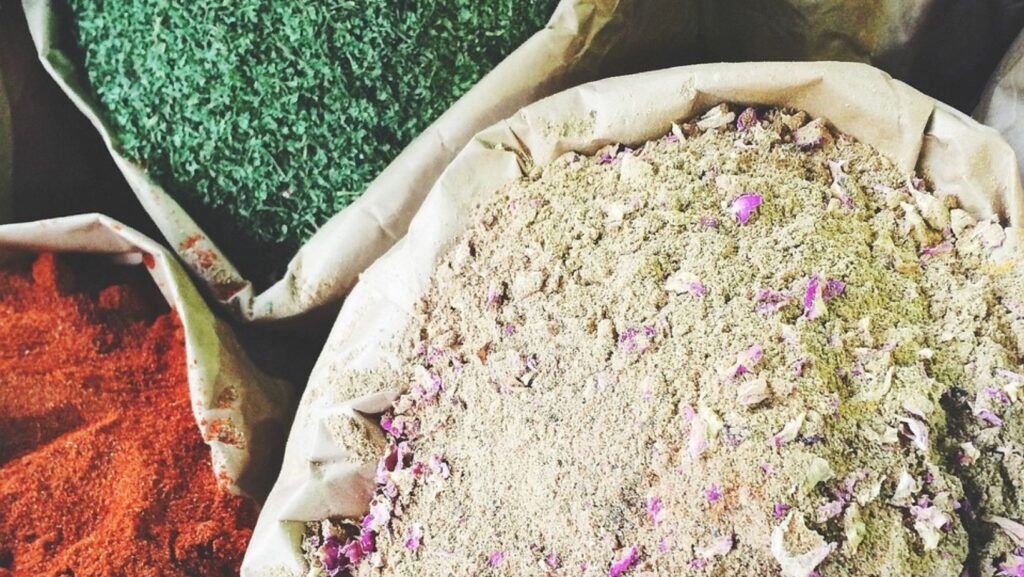The Rise of Kratom in Canada: Exploring Its Benefits and Risks

Kratom is the latest buzzword in the Canadian alternative medicine industry. While the herb’s popularity still pales in comparison to Cannabis, it’s no less therapeutic. Multiple scientific studies and anecdotal reports have vouched for kratom’s healing benefits. So potent are the plant’s healing properties that some proponents suggest it could help alleviate Canada’s opioid crisis. If you’re still skeptical about kratom’s pharmacological abilities (perhaps due to its reported mind-altering effects), this article shall hopefully allay your fears.
Read below as we track kratom’s origin and why it’s dominating conversations in alternative medicine quarters.
Introducing Kratom
Mitragyna speciosa, better known by its common name, kratom, is a tropical medicinal plant from Southeast Asia. The herb has garnered cult-like attention in the West for its reported healing benefits.
Studies have shown that kratom’s naturally occurring compounds, particularly the alkaloids mitragynine and 7-hydroxy mitragynine, might remedy specific ailments.
More exciting is that there are numerous reliable wellness stores where you can source high-quality kratom Canada. You simply need to research a vendor’s reputation and insist on organically cultivated, lab-tested kratom products.
However, kratom has not only piqued the interest of wellness enthusiasts. It has also come under intense scrutiny by drug enforcement agencies. Therefore, it’s prudent to understand the law while shopping for kratom in Canada.
Exploring Kratom’s Health Benefits
1. Kratom for Pain
Pain management is among the primary reasons most people are gravitating toward kratom-infused supplements.
According to research, kratom attenuates aches by raising the body’s pain tolerance.
Kratom’s analgesic properties are rooted in its powerful interactions with several opioid receptors in the brain. The plant follows a nearly similar pathway as conventional opioids, such as codeine and morphine.
2. Kratom for Inflammation
Inflammation is pain’s ugly cousin. The two conditions often share a cause-effect relationship, although they may both manifest an underlying disease. Fortunately, using kratom consistently might help alleviate inflammation, too.
While most of the kratom’s alkaloids contain some anti-inflammatory properties, rhynchophylline and epicatechin particularly stand out. The two compounds alleviate inflammation by blocking the release and signaling of key proinflammatory markers, such as cytokines.

3. Kratom for Fatigue
Kratom belongs to the same botanical family as coffee. So, it’s unsurprising that the herb possesses caffeine-like energizing properties. By adding kratom to your morning routine, you can charge up for an action-packed day ahead and effortlessly ace what could have been a daunting assignment.
One intriguing fact about kratom is that it can uplift both physical and mental energy. Whether you’re seeking an extra energy boost before hitting the gym or seeking to stimulate your creative juices before joining a brainstorming session, you can trust kratom to deliver.
4. Kratom for Anxiety
Anxiety is a leading cause of severe mental and psychiatric disorders, including post-traumatic stress disorder (PTSD) and bipolar disorder (BP). Since anxiety symptoms worsen over time, early intervention is paramount. Now, it turns out that using kratom regularly might soothe nervousness and improve overall mood. One study found that kratom may treat anxiety by activating serotonergic receptors across the central nervous system (CNS). Serotonergic receptors are receptors that modulate serotonin signaling. By interacting with these receptors, researchers inferred that kratom might soothe anxiety symptoms.
5. Kratom for Sleep Deprivation
Mitragyna’s calming effects make it a potential remedy for sleep disorders such as insomnia and restless leg syndrome. Integrating kratom into your bedtime routine can soothe the racing thoughts associated with prolonged sleep latency. Besides, the herb’s analgesic and anxiolytic properties might help minimize sleep disruptions caused by body aches and PTSD, respectively.

Why Is Kratom Popular In Canada?
With the continuous list of kratom’s potential medicinal properties, it’s understandable why most Canadian herbal enthusiasts are taking to this Asian herb. The consistent demand for kratom supplements has had many industry leaders projecting a bullish outlook. According to Market Research Future, the global kratom market size might hit USD 15.92 billion by 2032. Suffice it to say that North America accounts for a sizable share of the worldwide kratom market. Kratom’s popularity in Canada is further fueled by emerging reports indicating that the herb may help alleviate the country’s opioid epidemic.
Apparently, kratom impacts similar opioid receptors as scheduled opioid drugs. The difference is that the herb partially exerts its influence, allowing users to maximize its therapeutic properties without developing an addiction. If you’re trapped in the opioid crisis, it’s relieving to know that you can gradually replace your opioid dosages with kratom. As both drugs produce similar mind-altering effects, kratom can easily fool your brain into believing that you’re still on regular opioids. This allows you to quit the more harmful opioids without suffering severe withdrawal symptoms.
Are There Adverse Effects To Beware Of?
Kratom is inherently psychoactive, which explains why Health Canada has yet to authorize kratom-based alkaloids for therapeutic use. As with most psychoactive plants, an overdose may trigger euphoria and intoxication. Excessive kratom consumption is also associated with common side effects like nausea, itching, dry mouth, drowsiness, and inappetence.
The saving grace is that kratom is remarkably safer than most opioids. Provided that you consume the herb sparingly following expert dosage guidelines, you’re unlikely to suffer severe adverse events.

Final Word
Kratom’s popularity is rooted in its diverse therapeutic properties. While Canadian drug regulators express reservations about the herb’s potential psychedelic effects, reports of kratom overdose are almost unheard of. However, kratom users should proceed cautiously to avoid suffering common adverse events that could impede the plant’s efficacy.

 How Embedded Systems Power Smart Devices
How Embedded Systems Power Smart Devices  APIs Unlock Online Gambling’s Future in 2026: Blockchain Transforms Trust
APIs Unlock Online Gambling’s Future in 2026: Blockchain Transforms Trust  Why 24/7 Threat Monitoring Remains Out of Reach for Most Teams
Why 24/7 Threat Monitoring Remains Out of Reach for Most Teams